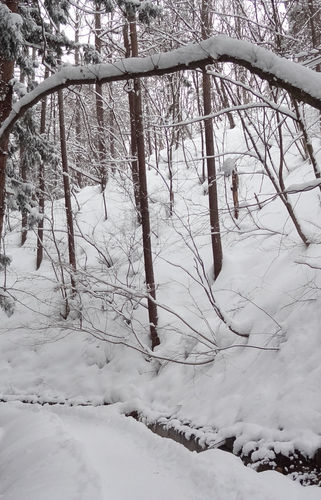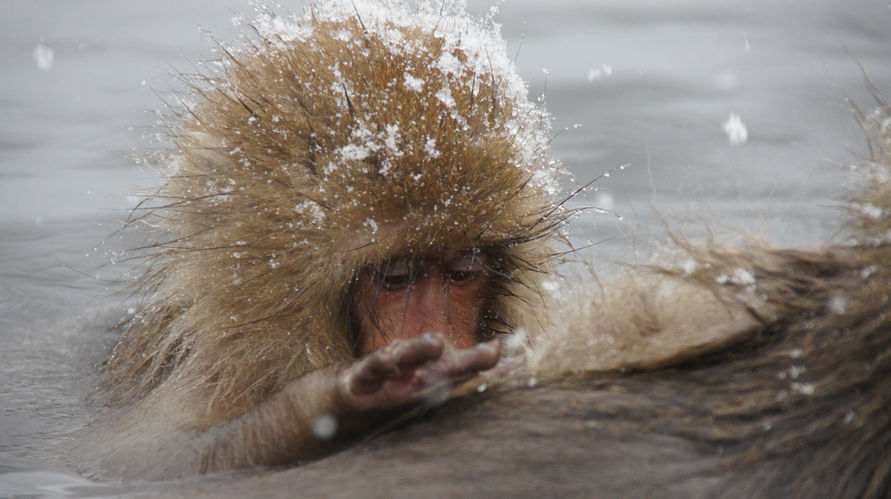Jigokudani Monkey Park
Jigokudani
Jigokudani Monkey Park, nestled in the mountains of Nagano Prefecture in Japan, is a remarkable wildlife sanctuary renowned for its unique inhabitants: the Japanese macaques, commonly known as snow monkeys. This enchanting park offers visitors a rare opportunity to observe these captivating primates in their natural habitat, where they showcase their fascinating behaviors, including soaking in natural hot springs during the cold winter months. With its scenic beauty, serene atmosphere, and incredible wildlife encounters, Jigokudani Monkey Park has become a popular destination for nature enthusiasts from around the world.
Located in the Joshinetsu Kogen National Park, Jigokudani Monkey Park sits at an elevation of approximately 850 meters above sea level. The name "Jigokudani" translates to "Hell's Valley," aptly describing the park's rugged and harsh terrain. The area is characterized by steep cliffs, deep gorges, and dense forests, creating a picturesque backdrop for the park's inhabitants. Visitors can marvel at the park's diverse flora and fauna, including Japanese cedar, maple trees, and various bird species, as they make their way along the scenic walking trails.
The main attraction of Jigokudani Monkey Park is undoubtedly the Japanese macaques, a species known for its adaptability to cold climates. These snow monkeys have captured the imagination of people worldwide with their unique behavior of bathing in the natural hot springs, a practice that has become synonymous with the park. This intriguing behavior is not observed in other macaque populations and has garnered significant attention from researchers and wildlife enthusiasts alike.
The best time to visit Jigokudani Monkey Park is during the winter months, from December to March, when the monkeys are most likely to bathe in the hot springs. The surrounding snow-covered scenery adds to the park's ethereal charm and offers excellent opportunities for photography.
Visitors to Jigokudani Monkey Park can expect a truly memorable experience. The park is accessible via a 30-minute walk from the nearest parking lot, following a scenic trail through a forested valley. As you approach the park, the sight of steam rising from the hot springs amid the snow-covered landscape creates a magical ambiance.
Upon reaching the park, visitors can observe the monkeys from specially constructed viewing platforms and trails that ensure a safe and unobtrusive experience. While the monkeys are habituated to human presence, it is essential to follow the park's rules and maintain a respectful distance from the animals. Feeding the monkeys is strictly prohibited to avoid altering their natural behavior and diet.
Jigokudani Monkey Park stands as a testament to the captivating wonders of the natural world. Its unique combination of breathtaking scenery and the enchanting snow monkeys bathing in hot springs creates an unforgettable experience for visitors. Beyond the park itself, the region offers a wealth of cultural and outdoor activities, making it a well-rounded destination for travelers.
By fostering conservation efforts and facilitating research, Jigokudani Monkey Park has become a sanctuary for the snow monkeys and an educational resource for primate enthusiasts worldwide. A visit to this remarkable park is a journey into the heart of nature's beauty and the remarkable lives of the snow monkeys that call it home.
The monkeys' hot spring habit originated in the 1960s when a park worker noticed them seeking warmth near a natural geothermal pool. To the amazement of onlookers, the monkeys gradually began dipping into the warm water, particularly during the winter months when temperatures drop significantly. Today, this iconic behavior has become an iconic symbol of the park and attracts countless visitors who wish to witness this mesmerizing spectacle firsthand.
Jigokudani Monkey Park has played a crucial role in the conservation and research of Japanese macaques. The park's management has diligently worked to protect the monkeys' habitat, ensuring their continued survival and well-being. Efforts have been made to maintain a balance between human presence and the monkeys' natural behavior, allowing visitors to observe them from a designated area while minimizing direct contact.
Researchers have taken advantage of the unique environment of the park to conduct various studies on primate behavior, ecology, and conservation. The long-term observations and data collected at Jigokudani have contributed significantly to our understanding of the social dynamics, feeding habits, and overall biology of Japanese macaques.










